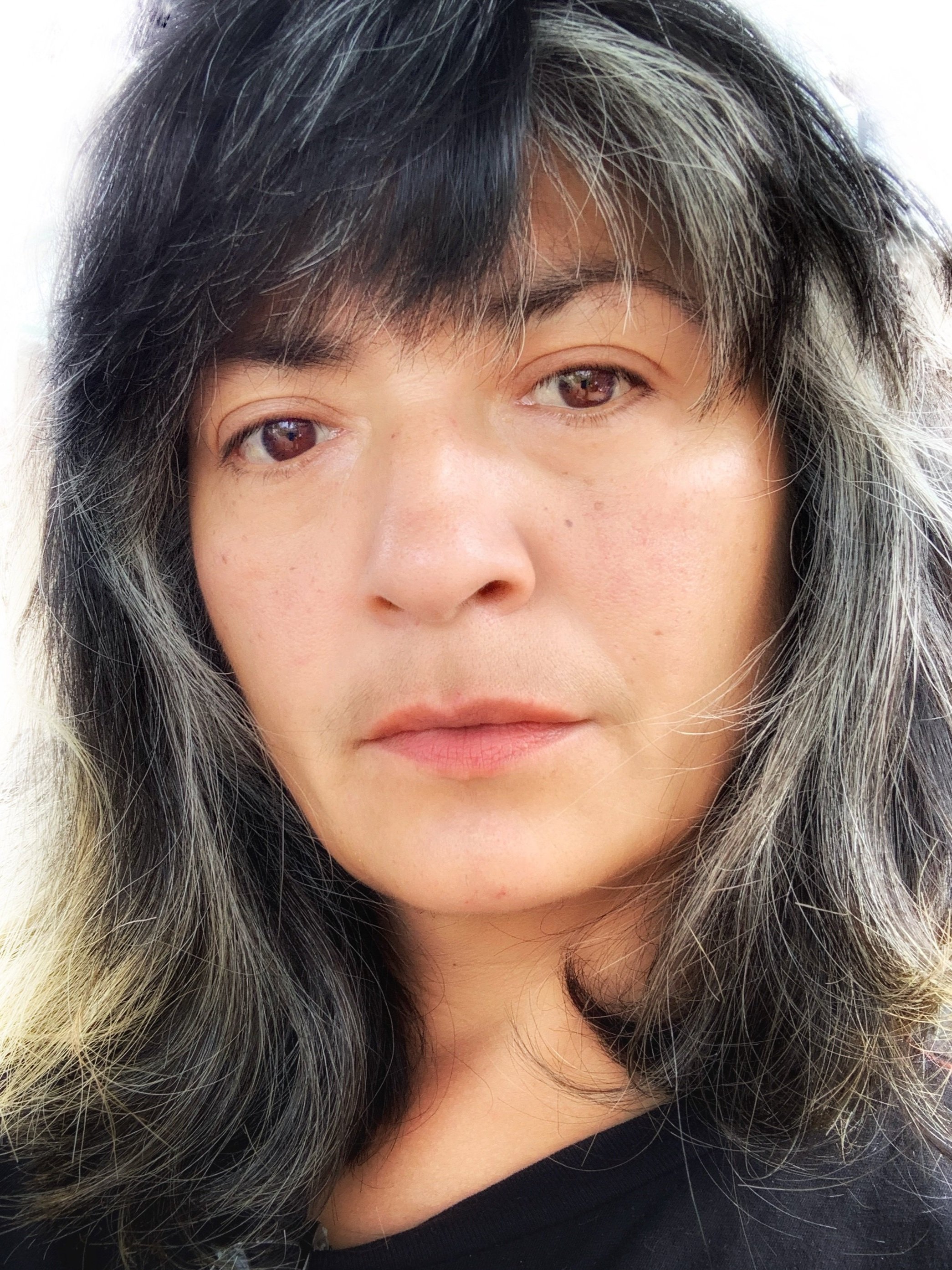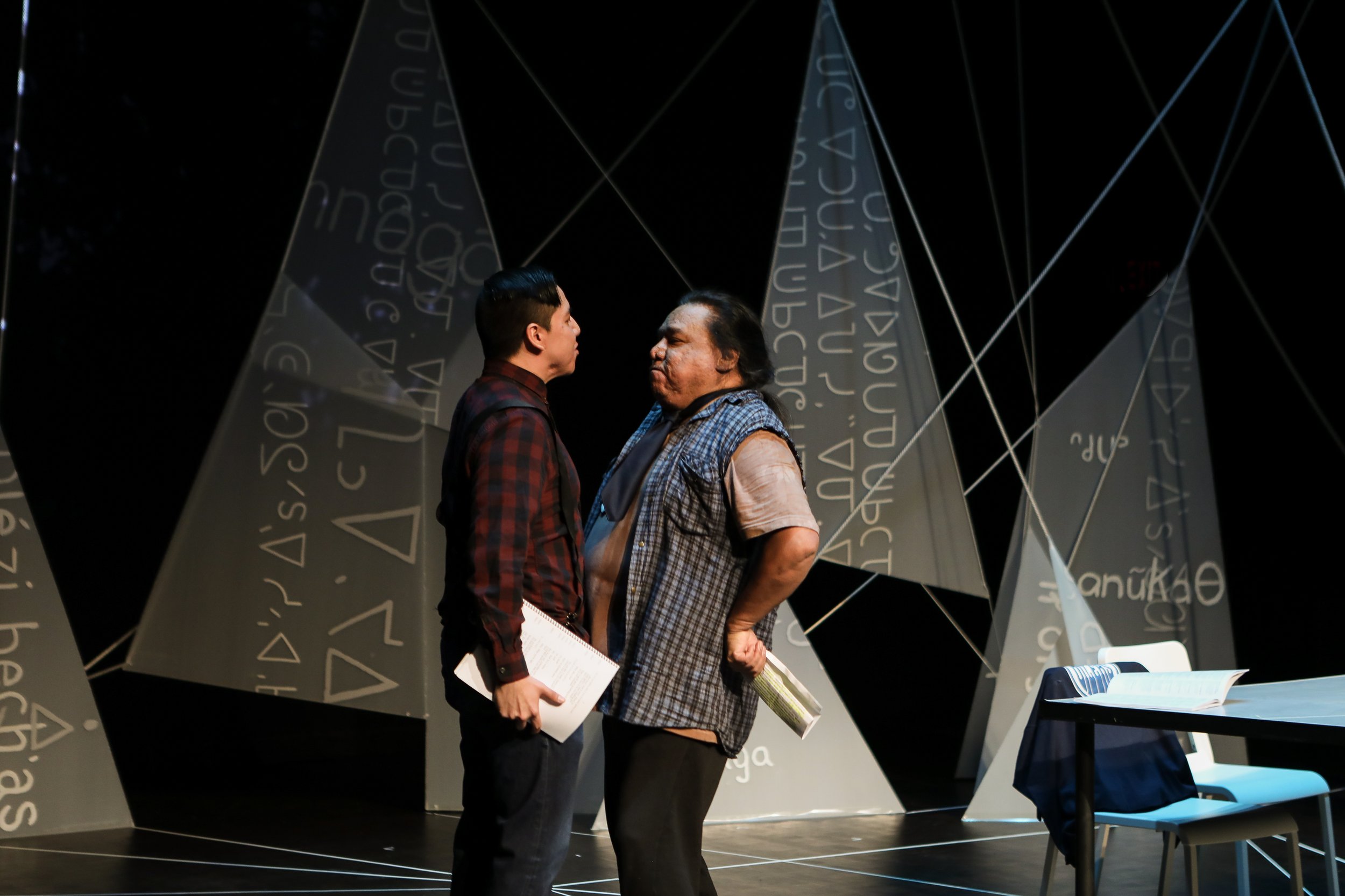Navigating Truth and Reconciliation over the dinner table in White Noise
Coast Salish actor Columpa Bobb reflects on the legacy of late playwright Taran Kootenhayoo, the need to break bread, and the importance of listening
Columpa Bobb
Taran Kootenhayoo
The Firehall Arts Centre and the Savage Society present White Noise from April 16 to May 1
VETERAN COAST SALISH theatre artist Columpa Bobb admires the setting late young playwright Taran Kootenhayoo chose for his play White Noise: the simple dinner table.
In the work, which sees its premiere this week at the Firehall Arts Centre, two families—one Indigenous, one non-Indigenous—talk their way through Truth and Reconciliation over a meal.
“One of the things I really enjoy about how this comes up is it’s a very organic experience: it’s just two families together to break bread, and hilarity ensues,” Bobb tells Stir on a break from rehearsal. “You get to see the world view at large through this intergenerational microcosm of ‘What is Canada?’
“It's a cultural thing for many Indigenous folks, me included: that’s the whole point of feasts, everybody just goes for it,” she continues. “The ride is sometimes hilarious and sometimes tense and heated. Everybody’s coming from their truth.”
Truth is something Bobb has been speaking, thinking about, and pursuing, for much of her life. The great-granddaughter of Tsleil-Waututh Chief Dan George, she’s also the daughter of writer, activist, and academic Lee Maracle, who passed away late last year. And Bobb and her family have been trying to voice the truth about the legacy of colonialism and residential schools for decades.
“I remember picketing with my parents to call on the government to do something about mass graves,” she says. “So it’s not like we're saying anything different now. Are people listening and absorbing what they hear? That's one of the things this play tackles.
Braiden Houle and Sam Bob in a staged reading for White Noise at the Talking Stick Festival in 2019.
“For me, as Columpa the performer, I believe we are getting closer to getting ready to tell the truth,” she adds of the larger quest for Truth and Reconciliation. “That's what I see in my own personal steps on the planet.”
Bobb has worked broadly across theatre as an actor, stage manager, writer, and teacher—she’s penned more than a dozen plays—and is also well-known as Mary Scott on TV’s North of 60. In rehearsals here, she’s constantly struck by the intergenerational insights and empathy that Kootenhayoo—the Vancouver-based, Alexis Nakota Sioux Nation member who died suddenly on December 31, 2020, at just 27 years old—brings to this world premiere, developed over the years with the support of the Savage Society. Bobb came to know him when she led a 12-week program at the Firehall, and watched the multidisciplinary artist perform spoken-word poetry at Cafe Deux Soleils.
“He was very fun and funny and smart. We’re doing our best to honour his words and his journey here on Earth and we fully realize this is his legacy,” Bobb stresses. “He allows the miseducation of Canadian citizens to be present on the stage. We were all told things at school, and if you come from a place of privilege and power, then why would you question that? But he does allow that gentle heart to shine through the characters, and for the generational empathy to shine through as well.”
Bobb also admires Kootenhayoo as a “jack of all trades” in the performing-arts world, not just writing, but acting onstage in shows like the critically lauded Red Patch and onscreen in films like Bella, Ciao.
Fittingly, the production here features a strong contingent of Indigenous talent both onstage and behind the scenes—with Cree and Saulteaux director Renae Morriseau at the helm, and Kootenhayoo’s sister DJ Kookum on board for associate direction and sound design—something Bobb has long advocated for.
“There is no equitable access to this industry–people often forget that most of the work is behind-the-scenes, whether it’s stage managers, designers, administrators,” she relates, while lauding the Firehall’s efforts. “There needs to be an industry-wide shift.”
For this four-hander, Bobb plays an Indigenous wife and mother who speaks her mind, and is trying to mentor her young soon-to-be-an-adult son (Braiden Houle) to speak his mind too.
And she sees the conversations they have at the dinner table as an apt metaphor for the way the work we have to do toward Truth and Reconciliation has to start on a personal level, then in the community, before it can move to changes in government legislation.
“I don't think we can get to reconciliation as a country till we can sit down and tell the truth about what the government has done to all of us,” she says.
“The reconciliation has to be to the self first: what is the baggage I carry that I should let go of? That’s an intellectual and internal experience. Then when you take that across the table to another person, then it’s an exchange.
“I really do believe there's a chance for these families to reconcile,” she adds optimistically. “One of the things I like about the two families is regardless of who's right or wrong, they are willing to try something. If there’s anything to take away it's that these two families are brave and courageous for lighting the fire under this conversation.”















